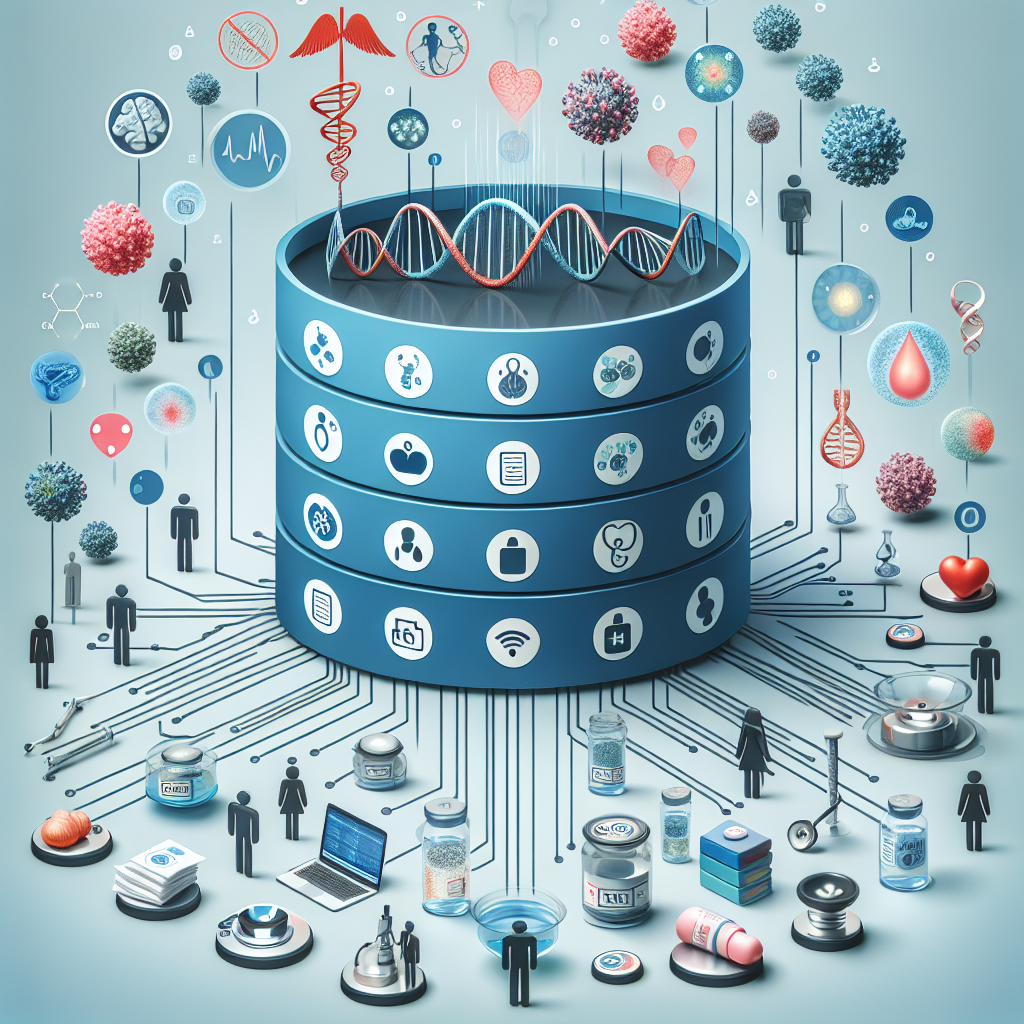The Impact of Big Data on Personalized Medicine
In recent years, there has been a growing interest in personalized medicine, which aims to provide tailored medical treatments based on an individual’s genetic makeup, lifestyle, and other personal factors. One of the key drivers of this trend is the use of big data, which refers to the vast amount of information generated in various sectors, including healthcare. Big data analytics has the potential to revolutionize the field of medicine by enabling researchers and healthcare providers to better understand diseases, predict outcomes, and develop more targeted treatments for patients.
Big data in healthcare includes a wide range of sources, such as electronic health records, genomic data, medical imaging, wearable devices, and social media. By analyzing this data, researchers can identify patterns and trends that would be difficult to detect with traditional methods. For example, genomic sequencing can reveal genetic mutations that increase the risk of certain diseases, while wearable devices can track a patient’s activity levels and vital signs in real-time. By combining these different sources of data, researchers can create a more comprehensive picture of an individual’s health and develop personalized treatment plans accordingly.
One of the main benefits of personalized medicine is the ability to tailor treatments to each patient’s specific needs. For example, some cancer patients may respond better to certain types of chemotherapy based on their genetic profile, while others may benefit more from immunotherapy or targeted therapies. By analyzing big data, researchers can identify these differences and recommend the most effective treatment for each individual. This not only improves patient outcomes but also reduces the risk of side effects and unnecessary treatments.
Another important application of big data in personalized medicine is the prediction of disease progression and treatment outcomes. By analyzing large datasets of patient information, researchers can develop algorithms that can predict how a disease is likely to progress in a given individual and how they will respond to different treatments. This information can help healthcare providers make more informed decisions about the best course of action for their patients, leading to more personalized and effective care.
In addition to improving patient outcomes, big data can also help researchers better understand the underlying causes of diseases and identify new therapeutic targets. By analyzing large datasets of genomic and clinical data, researchers can uncover genetic variations that increase the risk of certain diseases and develop targeted treatments to address these factors. This has the potential to revolutionize drug development by enabling scientists to identify patients who are most likely to benefit from a particular treatment and design clinical trials accordingly.
Despite the many benefits of big data in personalized medicine, there are also some challenges and limitations to consider. One of the main challenges is the sheer volume of data that needs to be processed and analyzed. Healthcare organizations must invest in the necessary infrastructure and technology to manage and analyze large datasets effectively. This can be costly and time-consuming, especially for smaller healthcare providers who may not have the resources to invest in advanced data analytics tools.
Another challenge is the need to ensure the privacy and security of patient data. With the increasing amount of sensitive information being collected and analyzed, there is a growing concern about how this data is being used and shared. Healthcare organizations must implement robust data governance policies and security measures to protect patient privacy and comply with regulations such as the Health Insurance Portability and Accountability Act (HIPAA).
Despite these challenges, the potential benefits of big data in personalized medicine are undeniable. By harnessing the power of big data analytics, researchers and healthcare providers can unlock new insights into the underlying causes of diseases, predict treatment outcomes, and develop more targeted therapies for patients. This has the potential to revolutionize the field of medicine and improve patient outcomes in ways that were previously unimaginable.
FAQs:
1. What is personalized medicine?
Personalized medicine is an approach to healthcare that aims to provide tailored medical treatments based on an individual’s genetic makeup, lifestyle, and other personal factors. By analyzing a patient’s unique characteristics, healthcare providers can develop more targeted and effective treatment plans that are tailored to their specific needs.
2. How does big data impact personalized medicine?
Big data analytics enables researchers and healthcare providers to analyze large datasets of patient information, genomic data, and other sources to better understand diseases, predict outcomes, and develop personalized treatment plans. By identifying patterns and trends in the data, researchers can uncover new insights into the underlying causes of diseases and develop more targeted therapies for patients.
3. What are the benefits of personalized medicine?
Some of the benefits of personalized medicine include improved patient outcomes, reduced risk of side effects, and more targeted treatments. By tailoring treatments to each individual’s specific needs, healthcare providers can optimize the effectiveness of therapies and reduce the risk of adverse reactions. This can lead to better outcomes for patients and a more personalized approach to healthcare.
4. What are the challenges of implementing big data in personalized medicine?
Some of the challenges of implementing big data in personalized medicine include the need for advanced technology and infrastructure, the complexity of analyzing large datasets, and concerns about patient privacy and data security. Healthcare organizations must invest in the necessary resources and implement robust data governance policies to ensure the privacy and security of patient data.
5. How can healthcare organizations overcome these challenges?
To overcome the challenges of implementing big data in personalized medicine, healthcare organizations can invest in advanced data analytics tools, develop robust data governance policies, and ensure compliance with regulations such as HIPAA. By prioritizing data security and privacy, healthcare organizations can harness the power of big data to improve patient outcomes and revolutionize the field of medicine.

